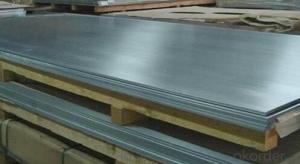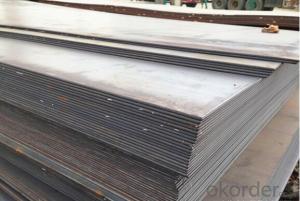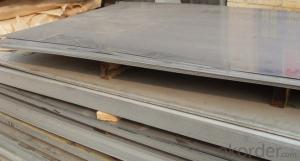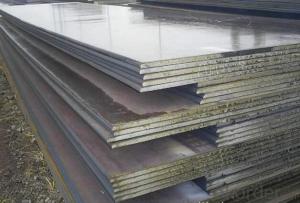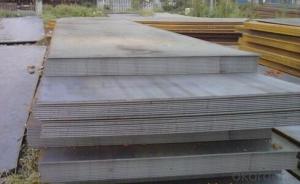SGS Approved DIN 1623 St12 Grade Cold Rolled Steel Sheet in Coils
- Loading Port:
- Tianjin
- Payment Terms:
- TT OR LC
- Min Order Qty:
- 3 m.t.
- Supply Capability:
- 100000 m.t./month
OKorder Service Pledge
OKorder Financial Service
You Might Also Like
Item specifice
SGS Approved DIN 1623 St12 Grade Cold Rolled Steel Sheet in Coils
Detailed Information of SGS Approved DIN 1623 St12 Grade Cold Rolled Steel Sheet in Coils
| C | Si | P | S | yield Strength MAp | Tensile strength MAp | Elongation % | ||
| A36 | 0.24 | 0.4 | 0.045 | 0.03 | 250 | 400-520 | 26 | |
| C | Si | Mn | P | S | Cu | |||
| A283 | ≤0.27 | 0.15-0.4 | ≤0.9 | ≤0.035 | ≤0.04 | ≥0.2 | ||
| Thickness: | 6mm, 8mm, 12mm, 16mm, 20mm, 25mm, 30mm, 50mm, 80mm, 100mm, 150mm, 200mm | |||||||
| Width: | 1500mm, 1800mm, 2000mm, 2200mm, 2500mm | |||||||
| Length: | 6000mm, 8000m, can cut to width and length | |||||||
| Packing Details; | according to customer‘s require or export’s standard | |||||||
| Delivery time; | 7 days for stock sizes, 20-25 days for new production sizes | |||||||
| Port: | Tianjin China | |||||||
Related Products Overviews of SGS Approved DIN 1623 St12 Grade Cold Rolled Steel Sheet in Coils
Product Name | Typical Grades | Diameter(mm) | Standard Adopted |
Carbon Steel | 20 (1020/S20C/C22) |
Ø16-Ø300 |
GB/SAE/ JIS/DIN |
40 (1040/S40C/C40) | |||
45 (1045/S45C/C45) | |||
Bearing Steel | GCr9 (51100/SUJ1) |
Ø12-Ø250 | |
GCr15 (52100/SUJ2/100Gr6) | |||
GCr9SiMn (A485-Gr.1/SUJ3) | |||
Cr-Mo Steel | 20Cr (5120/SCr420H/20Cr4) |
Ø12-Ø250 | |
40Cr (5140/SCr440/41Cr4) | |||
42CrMo(4140/SCM440/42CrMo4) | |||
Gear Steel | 20CrNiMo |
Ø16-Ø600 | |
20CrMn(5115/SMnC420/20MnCr5) | |||
20CrNiMo(8620/SNCM220/20CrMiMo2) |
Related Products Application of SGS Approved DIN 1623 St12 Grade Cold Rolled Steel Sheet in Coils
Carbon Steel | l Mold bottom l Plastic mold l Construction machinery parts l Automobile parts l Security grills l Screens l Construction |
Bearing Steel | l Aerospace l Navigation l Nuclear energy l Chemical industry l Electronic information l Petrochemical l Instrument and meter l Transportation |
Cr-Mo Steel | l Mechanism & Fasteners gear l Stressed components for vehicles l Engines and machines l Parts of larger cross-section |
Gear Steel | l All kinds of gears l Statically and dynamically stressed component for vehicles l Engines and machine l Larger cross-section parts l Crankshafts |
Company Introduction of SGS Approved DIN 1623 St12 Grade Cold Rolled Steel Sheet in Coils
CNBM International Corporation is the most import and export platform of CNBM group(China National Building Material Group Corporation) ,which is a state-owned enterprise, ranked in 270th of Fortune Global 500 in 2015.
With its advantages, CNBM International are mainly concentrate on Cement, Glass, Iron and Steel, Ceramics industries and devotes herself for supplying high quality series of refractories as well as technical consultancies and logistics solution.
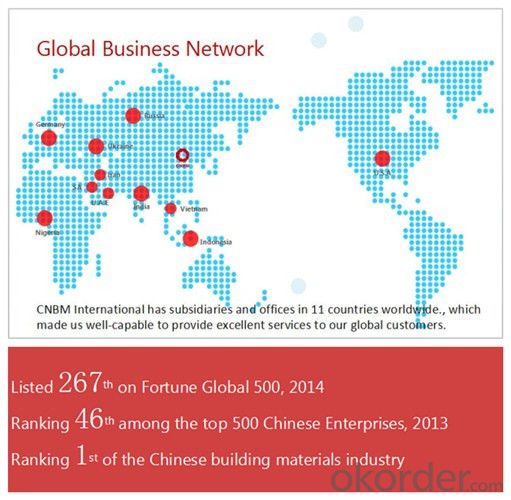
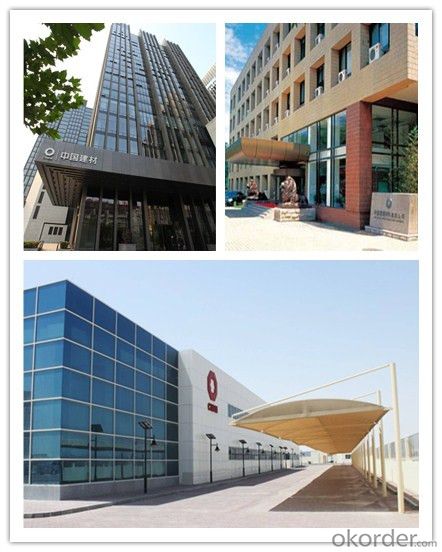
After-sale service | l CNBM provides the services and support you need for every step of our cooperation. We’re the business partners you can trust; you can relax and get on with doing business. l For any problem, please kindly contact us at any your convenient time, we’ll reply you in our first priority within 24 hours
|
Advantages
| l Industry experience over 20 years. l Shipment of goods -More than 70 countries worldwide. l The most convenient transport and prompt delivery. l Competitive price with best service. l High technical production line with top quality products. l High reputation based on best quality products.
|
Packaging & Delivery of SGS Approved DIN 1623 St12 Grade Cold Rolled Steel Sheet in Coils
Packaging Detail | Sea worthy packing /as per customer's packing instruction |
Delivery Detail | 15 ~ 40 days after receiving the deposit |
Products Show
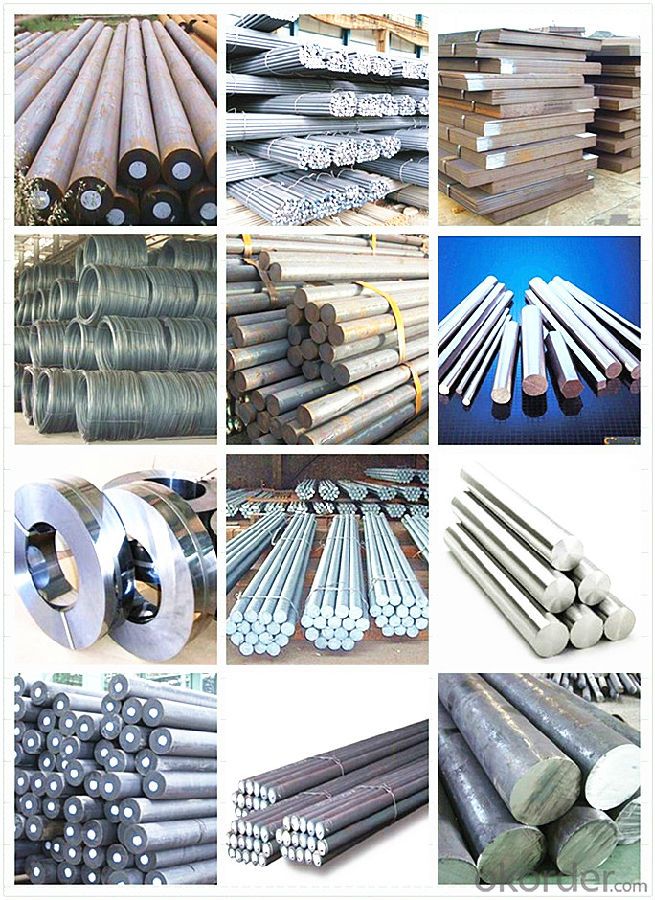
FAQ:
Are you a trading company or manufacturer? | Manufacturer |
What’s the MOQ? | 3 metric ton |
What’s your delivery time? | 15-35 days after downpayment received |
Do you Accept OEM service? | Yes |
what’s your delivery terms? | FOB/CFR/CIF |
What's the Payment Terms? | 30% as deposit,70% before shipment by T/T |
Western Union acceptable for small amount. | |
L/C acceptable for large amount. | |
Scrow ,Paybal,Alipay are also ok | |
Why choose us? | Chose happens because of quality, then price, We can give you both. Additionally, we can also offer professional products inquiry, products knowledge train (for agents), smooth goods delivery, excellent customer solution proposals. |
What's your available port of Shipment? | Main Port, China |
What’s your featured services? | Our service formula: good quality+ good price+ good service=customer's trust
|
Where are your Market? | Covering more than 160 countries in the world |
- Q:How does bearing steel contribute to the manufacturing of bearings?
- Bearing steel, with its high strength, hardness, and wear resistance properties, plays a crucial role in the manufacturing of bearings. It provides the necessary material strength to withstand heavy loads, reduce friction, and ensure smooth rotation. The specific composition of bearing steel, including elements like chromium, molybdenum, and carbon, enhances its durability, corrosion resistance, and ability to retain shape under extreme conditions. By using bearing steel, manufacturers can produce high-quality bearings that offer reliable performance, longer lifespan, and improved efficiency in various applications ranging from automotive and aerospace to industrial machinery and appliances.
- Q:How is maraging steel used in the production of rocket and missile components?
- Maraging steel is used in the production of rocket and missile components due to its exceptional strength, toughness, and resistance to heat and corrosion. Its unique properties make it ideal for critical parts like rocket casings, engine components, and missile guidance systems, where high performance and reliability are paramount. The steel's ability to handle extreme conditions, such as high pressures and temperatures, ensures that these components can withstand the rigorous demands of aerospace applications.
- Q:Can special steel be used in high-pressure applications?
- Indeed, high-pressure applications can utilize special steel. These steels, also referred to as alloy steels, are intentionally designed to possess improved mechanical properties, including high strength, ductility, and resistance to corrosion. These characteristics make them suitable for enduring high-pressure settings. Industries such as oil and gas, aerospace, automotive, and power generation often employ special steels due to their high-pressure applications. In the oil and gas sector, for instance, special steels are utilized in the production of high-pressure pipelines, valves, and pressure vessels that can withstand the intense pressure conditions during processes like oil drilling, transportation, and refining. The exceptional strength of special steel enables it to withstand the internal pressure exerted by fluids or gases without any deformation or failure. Additionally, its corrosion resistance ensures that the steel remains intact and undamaged even in the demanding operating conditions frequently encountered in high-pressure applications. Furthermore, special steels can be customized to meet specific requirements by adjusting their chemical composition and heat treatment processes. This customization allows the steel to exhibit even greater strength, toughness, and fatigue resistance, thereby making it an ideal choice for applications in high-pressure environments. To summarize, special steel can be utilized in high-pressure applications owing to its enhanced mechanical properties and resistance to corrosion. Its ability to endure extreme pressures makes it a dependable option for numerous industries that encounter high-pressure conditions.
- Q:How does special steel contribute to reducing material waste?
- Special steel contributes to reducing material waste through its unique properties and manufacturing processes. Firstly, special steel is known for its high strength and durability, which allows for the creation of products that have a longer lifespan and require less frequent replacement. This reduces the amount of material waste generated from constantly discarding and replacing worn-out products. Moreover, special steel is often designed to be easily recyclable. Its composition and manufacturing techniques allow for efficient recycling, enabling the reuse of steel scrap and minimizing the need for new raw materials. This significantly reduces material waste by preventing the accumulation of discarded steel products in landfills. Additionally, special steel's versatility and customization options play a vital role in reducing material waste. By tailoring the steel's composition and properties to specific applications, manufacturers can optimize the use of materials and avoid unnecessary waste. Special steel's ability to be formed into complex shapes and sizes further enhances its efficiency, as it reduces the amount of excess material that would typically be wasted during the manufacturing process. In summary, special steel contributes to reducing material waste through its strength and durability, recyclability, and customization options. By promoting longer product lifespans, efficient recycling processes, and optimized material usage, special steel plays a crucial role in minimizing waste and promoting sustainability.
- Q:What are the different methods of surface coloring for special steel?
- There are several methods of surface coloring for special steel, including electroplating, hot-dip galvanizing, powder coating, and physical vapor deposition (PVD). Each method offers unique benefits and can be chosen based on factors such as desired appearance, durability, corrosion resistance, and cost-effectiveness.
- Q:What is the hardness of special steel?
- The hardness of special steel can vary depending on the specific composition and heat treatment, but it is generally known for its high hardness and strength.
- Q:Can special steel be used in the production of cutting tools?
- Yes, special steel can be used in the production of cutting tools. Special steel, also known as tool steel, is specifically designed and manufactured for the purpose of making cutting tools. It possesses superior hardness, strength, and wear resistance, which are essential qualities for effective cutting and shaping applications. Special steel allows for the production of durable and high-performance cutting tools that can withstand the demands of various industries such as manufacturing, construction, and automotive.
- Q:What are the main advantages of using special steel in the medical field?
- The main advantages of using special steel in the medical field are its high strength and durability, corrosion resistance, and compatibility with sterilization processes. Special steel can withstand harsh conditions and repetitive use without compromising its integrity, making it ideal for medical devices and surgical instruments. Additionally, its resistance to corrosion ensures a longer lifespan and reduces the risk of contamination. The compatibility with sterilization methods, such as autoclaving, ensures that medical equipment remains safe and sterile for patient use.
- Q:What are the environmental impacts of using special steel?
- The use of special steel can have several environmental impacts. Firstly, the production of special steel involves the extraction of raw materials such as iron ore and coal, which can lead to deforestation, habitat destruction, and loss of biodiversity. The mining process can also result in the release of pollutants into the air, soil, and water, contributing to air and water pollution. Another environmental impact of special steel production is the emission of greenhouse gases, particularly carbon dioxide (CO2), during the manufacturing process. The high temperatures required to melt and shape the steel, as well as the energy-intensive processes involved, result in significant CO2 emissions. These emissions contribute to climate change and global warming. Furthermore, the transportation of special steel can also have environmental consequences. The shipping and logistics involved in transporting the steel from production facilities to end-users can result in additional greenhouse gas emissions, air pollution, and fuel consumption. Additionally, the disposal of special steel products at the end of their lifecycle can pose environmental challenges. If not properly recycled or disposed of, steel products can end up in landfills, taking up valuable space and potentially leaching harmful substances into the environment. Despite these environmental impacts, it is important to note that special steel is often used in various industries due to its durability, strength, and resistance to corrosion. Efforts are being made to mitigate these impacts through the adoption of cleaner production methods, such as recycling and using renewable energy sources in the steel manufacturing process. Additionally, initiatives like carbon capture and storage are being explored to reduce greenhouse gas emissions from steel production. Overall, while the use of special steel provides numerous benefits, it is critical to balance these advantages with the need to minimize its environmental impacts through sustainable production and responsible disposal practices.
- Q:How does special steel contribute to the aviation industry?
- Special steel plays a crucial role in the aviation industry by contributing to the safety, performance, and efficiency of aircraft. Firstly, special steel is used in the manufacturing of critical components of aircraft, including landing gears, engine parts, and structural elements. These components require materials with exceptional strength, durability, and resistance to fatigue and corrosion. Special steel, such as stainless steel or nickel-based alloys, offers these properties, ensuring the structural integrity and safety of the aircraft. Secondly, special steel enables the development of lightweight aircraft, which is a key requirement in the aviation industry. By utilizing high-strength alloys, manufacturers can reduce the weight of aircraft components without compromising their structural integrity. This results in fuel savings, extended range, and increased payload capacity, ultimately enhancing the efficiency of aircraft operations. Furthermore, special steel is crucial in enhancing the performance and reliability of aircraft engines. Steel alloys with high-temperature resistance and excellent mechanical properties are used in the production of turbine blades, combustion chambers, and exhaust systems. These components withstand extreme temperatures and stress levels, allowing engines to operate efficiently and reliably. Moreover, special steel contributes to the aviation industry by enabling innovative designs and technologies. With continuous advancements in material science, manufacturers are able to develop new steel alloys with improved properties, such as enhanced resistance to wear, thermal stability, or fatigue resistance. These innovations unlock new possibilities for aircraft design, performance, and fuel efficiency. In conclusion, special steel plays a vital role in the aviation industry by ensuring the safety, performance, and efficiency of aircraft. Its use in critical components, lightweight construction, engine manufacturing, and technological advancements contributes to the advancement of aviation, making air travel safer, more efficient, and more sustainable.
1. Manufacturer Overview |
|
|---|---|
| Location | |
| Year Established | |
| Annual Output Value | |
| Main Markets | |
| Company Certifications | |
2. Manufacturer Certificates |
|
|---|---|
| a) Certification Name | |
| Range | |
| Reference | |
| Validity Period | |
3. Manufacturer Capability |
|
|---|---|
| a)Trade Capacity | |
| Nearest Port | |
| Export Percentage | |
| No.of Employees in Trade Department | |
| Language Spoken: | |
| b)Factory Information | |
| Factory Size: | |
| No. of Production Lines | |
| Contract Manufacturing | |
| Product Price Range | |
Send your message to us
SGS Approved DIN 1623 St12 Grade Cold Rolled Steel Sheet in Coils
- Loading Port:
- Tianjin
- Payment Terms:
- TT OR LC
- Min Order Qty:
- 3 m.t.
- Supply Capability:
- 100000 m.t./month
OKorder Service Pledge
OKorder Financial Service
Similar products
New products
Hot products
Related keywords
